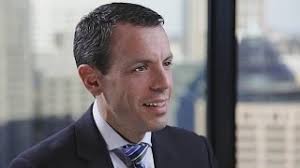BlackRock’s new regional index strategist talks China
MSCI has included 226 China A shares in its global emerging markets index, after a protracted process urged on by potential investors and competition from fellow index provider FTSE. MSCI expects at least US$600 billion of foreign capital flow into China as a result. New ETPs are bound to spring up.
Jonathan Howie, the former head of BlackRock’s iShares in Australia, has recently been promoted to the role as head of product and strategy for indexing (including ETFs) for the region, based in Hong Kong. BlackRock already has two iShares China products and Howie is examining new growth potential for ETPs across Asia Pacific as well as other indexed strategies for clients.
He has been replaced in his Sydney-based role by Christian Obrist, who relocates from Hong Kong, where he led BlackRock’s private banking and asset manager distribution.
The MSCI decision, announced on May 31 and foreshadowed for the last 18 months, has already caused some major shifts in the market. Northbound trades – foreign flows into China, including from Hong Kong – increased 73 per cent on the first day, a lot of it through passive funds. According to a report in last week’s ‘Week in China’ newsletter MSCI is expecting total northbound flows of more than US$600 billion over the next five-ten years. The inclusion by MSCI of 226 China A shares in its emerging markets index, is the first of two phases, with more stocks expected due to a lowering in the market capitalisation cutoff.
Howie said in an interview this week that the MSCI decision was all about northbound investments but BlackRock’s other question was how it could assist in Chinese southbound and internal domestic investments. His remit covers the Asia Pacific region, talking to pension funds and other investors. He expects to get back to Australia a few times per year to talk with local clients.
“The regulatory environment in China is still evolving,” he said. “We’ve had a joint venture in China for some time and we’re heavily engaged with the regulators as to how we can service the market. We’re encouraged by discussions but it’s not like operating in the developed markets – we have to take careful steps.”
On the question of developing more China-based ETFs or strategies, Howie said there was “a lot of wood to chop” before the firm potentially launched new product. Most of the Chinese money in domestic ETFs tends towards money-market-type strategies and the few equities funds have not fared that well. China already had the second-largest share market in the world, he said, and investment markets there were still evolving.
Given China has shown a predilection for the online purchase of all sorts of goods and services, one could make an argument that, with financial services, it could leapfrog over what we consider the traditional edifice of distribution, involving advisors and platforms, and that innovative onshore tech players could capture a lot of the potential market.
The China A shares market tends to be dominated by retail investors which has increased its volatility compared with other markets. More foreign investors should dampen this and provide more stability longer term.
With domestic ETPs, Howie said, we may find that Chinese investors would prefer factor-based, outcomes-orientated and other tilted or active ETPs to plain-vanilla market-cap products, which were the mainstay of the Australian ETF market since its inception in the early 2000s.
– G.B.










